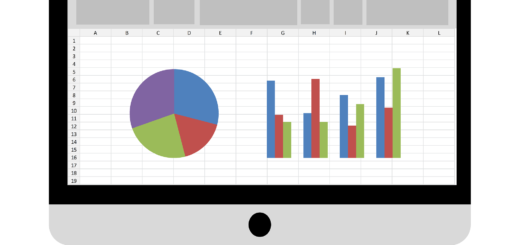Establishing Credit the Easy Way
If you recently became an adult or have never had a credit account in the past, you may be wondering how you go about establishing credit. Establishing credit can be harder that you would think at first glance since some financial institutions put individuals in to a catch-22 position. They will not grant you credit because you have no credit history but you cannot establish credit history if no one will grant you credit. It can also be hard to begin to establish credit after a major financial setback like filing bankruptcy.
Even though you may face some extra challenges when you are trying to establish credit, it is not an impossible task.

Opening Your First Account
There are a few types of credit accounts you can apply for to begin to establish your credit.
- Secured credit card– A secured credit card will require that you pay a deposit in to an account and that deposit will equal your credit limit. These accounts will typically require deposits between $250-$1000. The card works just like a traditional credit card in that you will make monthly payment on any charges. Secured cards protect the bank because if you do not make your payments, they already have the funds on deposit to cover the costs. The company will report to the credit bureaus and you will be building positive credit as long as you make your payments on time. After a period of time, the company may also upgrade you to a unsecured credit account.
- Student credit card– If you are a college or university student, you may be eligible to receive a student credit card. Many financial institutions offer unsecured credit cards to college students, but these cards will usually have higher interest rates as well as lower spending limits. Do not be discouraged by this, since starting with responsibly managing any credit card will build you credit and will ensure you will be able to take advantage of better offers in the future.
I have a card. Now what?
Now that you have your first credit card, how to you actually begin to establish your credit? Essentially, you just want to use your card and make monthly payments on time. After about six months of regular use and payments, you can try to apply for an unsecured credit cards or a non-student card. Your credit would still be considered ‘high risk’ since it is so new, but you will have established some degree of credibility. Never make too many applications as this does not help your credit and will create a red flag to potential lenders. In fact, only apply for one new account every six months or so to avoid having to many hard inquiries on your credit report. Please remember, establishing credit is a gradual process, it takes time and plenty of it.
Another strategy is to keep paying the credit card you currently have, for a much longer period of time, and apply for other cards when you are ready. The longer you have an account the better it is for your credit.
Also, maybe one of the worst things you could ever do is apply for store credit cards at every store you visit. Store credit cards are good at building your credit but it is very tempting to apply for them all, considering that they are usually offered along with a discount on your merchandise. Be wary of the fact that too many revolving accounts will do more harm than good.
Tips for Establishing Credit
- Do not make too many applications for credit.
- Keep making payments on time, all the time
- Don’t keep a ‘no balance’ credit card (a credit card with none of the spending limit used) – You need your good paying habits to be constantly reported to the credit bureaus.
- Do not have too may revolving accounts.
- Try not to use too much of the available balance on your accounts.
- Do not keep closing out accounts and reopening new ones.
- Avoid unnecessary debt.
- Avoid financial institutions that charges a fee to report your paying habits to the Credit Bureaus.
If these tips are followed then you are almost guaranteed that your credit ratings will be improved.




